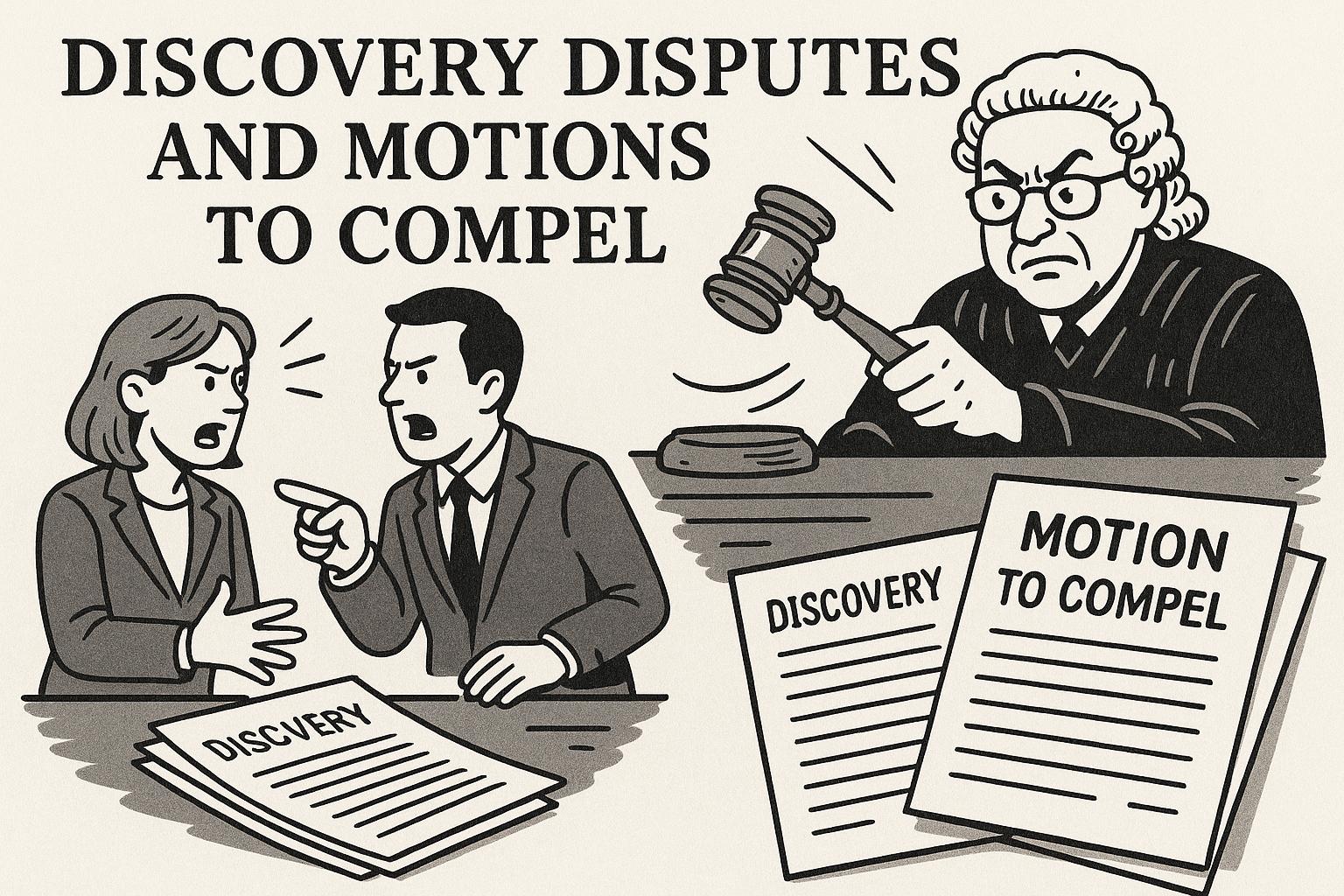Understanding Discovery Disputes
The discovery phase in litigation holds pivotal importance as it sets the groundwork for the trial by facilitating an exchange of pertinent information and evidence between parties involved. Yet, the discovery process is fraught with challenges and is prone to disagreements known as discovery disputes. These disputes are prevalent in litigation and arise when one party contends that the other is not providing the necessary information, or when there is discord about the breadth or relevance of the requested discovery.
Discovery disputes can emanate from a multitude of issues such as the perceived overreach of discovery requests, claims regarding the privileged nature of certain information, or differences in determining what information is pertinent to the case. Resolving these conflicts is of utmost importance to maintain the integrity and fairness of the trial process while minimizing potential delays that can arise from prolonged disagreements.
Resolving Discovery Disputes
The initial approach to managing a discovery dispute typically involves a meet and confer session. This informal meeting provides the parties with an opportunity to address and resolve their differences without escalating the matter to the judicial system. Many local court rules mandate such sessions as a form of due diligence, encouraging parties to make every effort to resolve matters amicably and prevent unnecessary judicial involvement.
Should these discussions fail to resolve the issue, the aggrieved party pursuing discovery might resort to filing a motion to compel. This legal recourse requests the court’s assistance in mandating the other party to produce the necessary information. The court’s assessment and subsequent decision on the motion will hinge on numerous aspects like the relevance of the sought-after information and the validity of any privilege claims put forth.
The Role of Motions to Compel
Motions to compel stand as a frequently used mechanism in litigating discovery disputes. These motions serve the primary function of enabling a party to seek court assistance when they believe the opposing party is failing to adhere to discovery responsibilities. By seeking judicial enforcement of these obligations, the motion endeavors to uphold the procedural fairness that the discovery phase intends to provide.
Filing a motion to compel necessitates the movant to provide evidence of efforts made to settle the dispute, typically showcased by demonstrating participation in a meet and confer session. Upon filing, the court meticulously examines the arguments laid out by both parties. A critical evaluation of the claims and defenses related to the discovery requests aids the court in deciding whether to grant or deny the motion, thereby influencing the direction the litigation process will take.
Consequences of Discovery Violations
Failure to comply with court orders concerning discovery can have substantial repercussions. Courts wield the authority to impose sanctions on parties that do not meet discovery mandates. The types of sanctions vary widely and can range from monetary penalties to more stringent actions such as striking pleadings or even rendering a default judgment against the non-compliant party.
The discretion courts hold in determining suitable sanctions serves several purposes, the foremost being to penalize noncompliance while concurrently deterring similar future conduct. For these reasons, it is imperative for all parties involved in litigation to possess a comprehensive understanding of their discovery obligations and proactively work to fulfill them, thus avoiding punitive measures.
Conclusion
Discovery disputes and the motions to compel that arise from them are integral components of the litigation landscape. Acquiring a thorough understanding of these processes aids litigants considerably in navigating the often complex pre-trial proceedings. Successfully resolving disputes in a collaborative manner and adhering to discovery orders with diligence will facilitate a legal process that is both fair and efficient. By doing so, involved parties not only safeguard their procedural rights but also contribute positively to the resolution of their cases, enhancing the judicial system’s overall efficacy.
